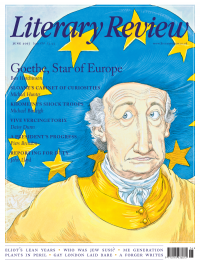Nakul Krishna
Other People’s Pain
The Ministry of Utmost Happiness
By Arundhati Roy
Hamish Hamilton 445pp £18.99
Arundhati Roy’s new novel follows a motley crew of disparate characters who find themselves thrown together in a kind of accidental family, squatting in an illegal construction on a Delhi graveyard. The novel is messy, a little prolix and occasionally puzzling, but its last pages offer a key to it. It appears in a poem by one of its characters, Tilottama, which, without its line breaks, reads, ‘How to tell a shattered story? By slowly becoming everybody. No. By slowly becoming everything.’
Tilottama, a partial self-portrait of the author, dominates the novel’s second half. The first half is taken up with the trials of Anjum and her community of transgender ‘hijras’, but this is not a novel where it makes sense to speak of protagonists. Stories and characters abound – the hunger-fasting

Sign Up to our newsletter
Receive free articles, highlights from the archive, news, details of prizes, and much more.@Lit_Review
Follow Literary Review on Twitter
Twitter Feed
Literary Review is seeking an editorial intern.
Though Jean-Michel Basquiat was a sensation in his lifetime, it was thirty years after his death that one of his pieces fetched a record price of $110.5 million.
Stephen Smith explores the artist's starry afterlife.
Stephen Smith - Paint Fast, Die Young
Stephen Smith: Paint Fast, Die Young - Jean-Michel Basquiat: The Making of an Icon by Doug Woodham
literaryreview.co.uk
15th-century news transmission was a slow business, reliant on horses and ships. As the centuries passed, though, mass newspapers and faster transport sped things up.
John Adamson examines how this evolution changed Europe.
John Adamson - Hold the Front Page
John Adamson: Hold the Front Page - The Great Exchange: Making the News in Early Modern Europe by Joad Raymond Wren
literaryreview.co.uk